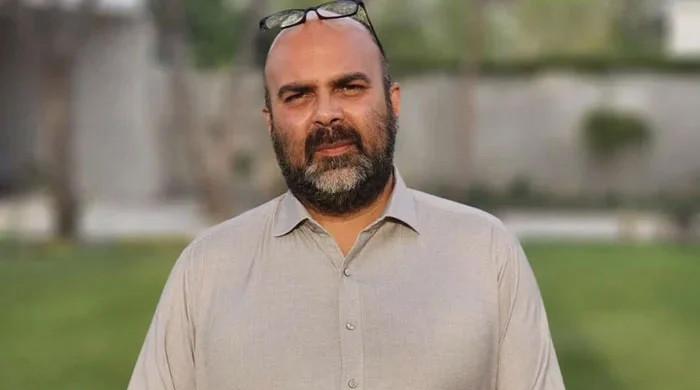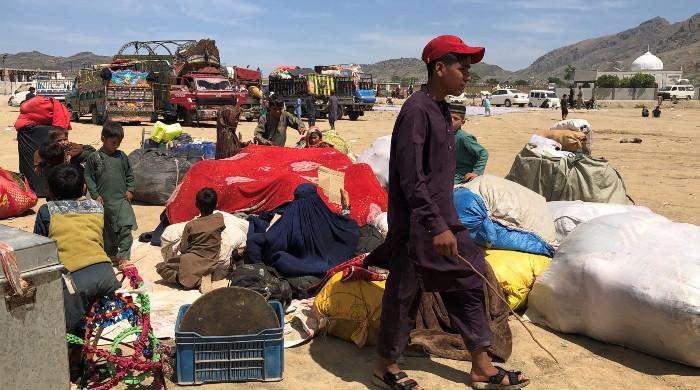CJP Gulzar Ahmed takes first suo motu notice over 'inadequate facilities' to combat coronavirus
The attorney general, the health secretary and the interior secretary asked to respond; hearing to resume April 13
April 10, 2020
Chief Justice of Pakistan Gulzar Ahmed Khan took his first suo motu notice on Friday over the "inadequate facilities" in the country to combat the coronavirus.
The chief justice has sent notices to the attorney general, the health secretary and the interior secretary to respond in the matter.
Justice Ahmed has asked the three respondents to provide details of what measures the government has taken so far to contain the spread of the virus and what facilities have been provided to hospitals.
A hearing in the matter by a five-member larger bench will resume on April 13.
On April 1, the same five-member bench, comprising the chief justice, Justice Umar Ata Bandial, Justice Mazhar Alam Miankhel, Justice Sajjad Ali Shah and Justice Amin Ahmed, had also heard the matter of the release of under-trial prisoners amid the virus' outbreak. A petition had been filed against the prisoners' release ordered by the Sindh and Islamabad high courts.
“Under what law can suspects and accused be released?” the CJP had asked while hearing arguments. He noted that it was already very difficult to arrest the accused in cases.
“The police are already busy with the coronavirus emergency. How can we let criminals be out on the roads as well?” he had asked.
He said robberies have already started taking place in Karachi soon after the release of prisoners. The due process of law will have to followed before such a thing can be allowed, the chief justice had ruled.
The Supreme Court then ordered over 500 prisoners — temporarily released to slow the spread of coronavirus — to be re-arrested, as it overturned the high courts’ judgments.
An exception was however made in the case of prisoners accused of minor crimes.
Pakistan's fight against the virus
Pakistan has reported 4,700 cases of the coronavirus and 68 deaths. Of the total infected, Punjab has the highest count — 2,280, whereas Sindh comes in second with 1,214.
A countrywide lockdown is being observed until April 14 to curb the spread of the virus. Owing to pressure from the business community, who are facing great losses, as well as concerns surrounding the livelihood of daily wage workers, the provinces are mulling over whether or not to extend the lockdown period.
Sindh was the first to implement a lockdown throughout the province, orders for which came into effect at midnight on March 23. Other provinces have followed suit.
Although provincial governments say this has greatly helped contain the virus, concerns have been raised surrounding the deaths of frontline medical workers, who are working with very few personal protection items.
A doctor from Gilgit-Baltistan has been hailed a hero after choosing to screen suspected coronavirus patients coming in from Iran despite a shortage of protective gear. He later contracted the virus and died.
Protests by doctors have erupted in various cities, with the most violent in Quetta where police resorted to baton-charging medical workers demonstrating against the non-availability of protective items.
The chairman of the National Disaster Management Authority has said that after procuring protective equipment from abroad, ample quantities have already been dispatched and will continue to be sent in the coming days as they are acquired.











